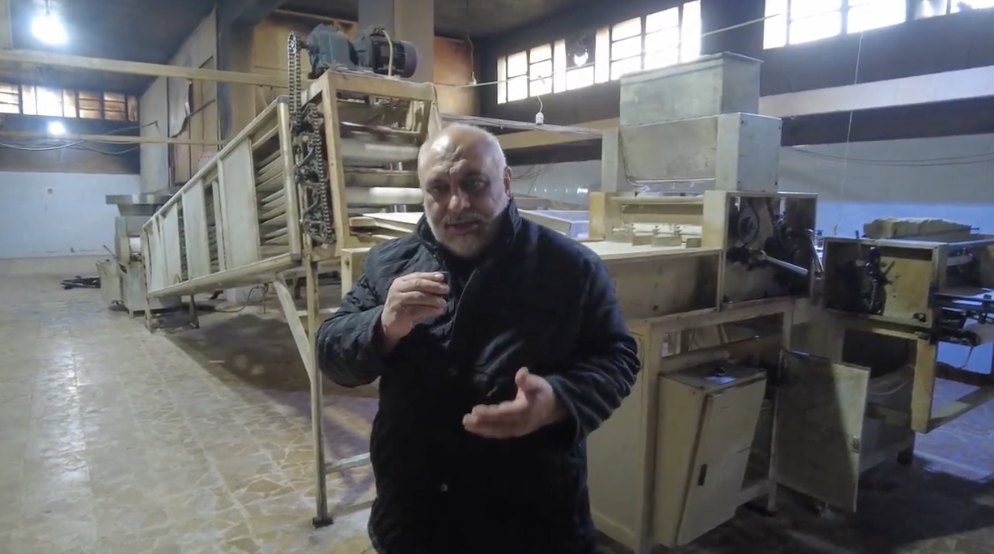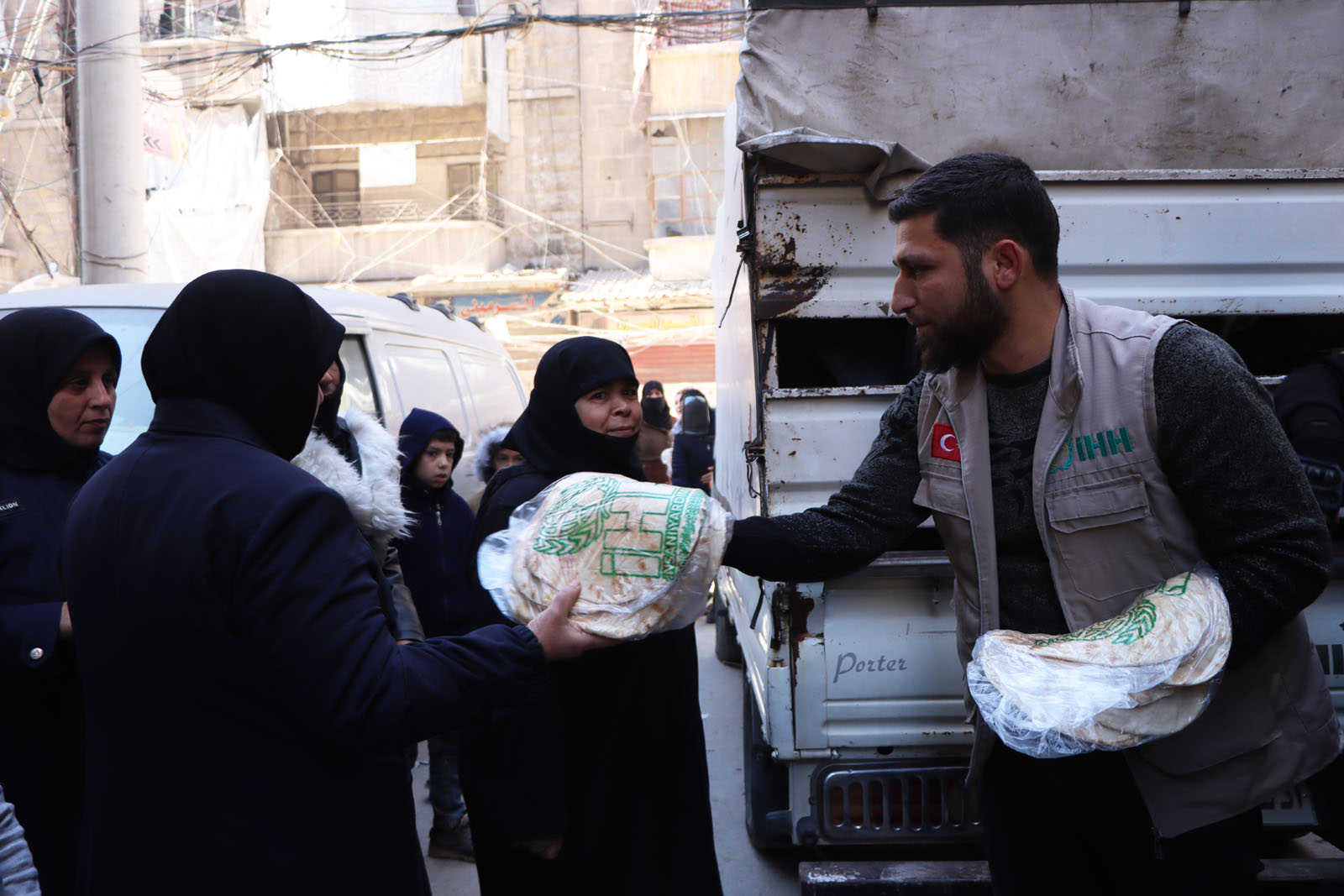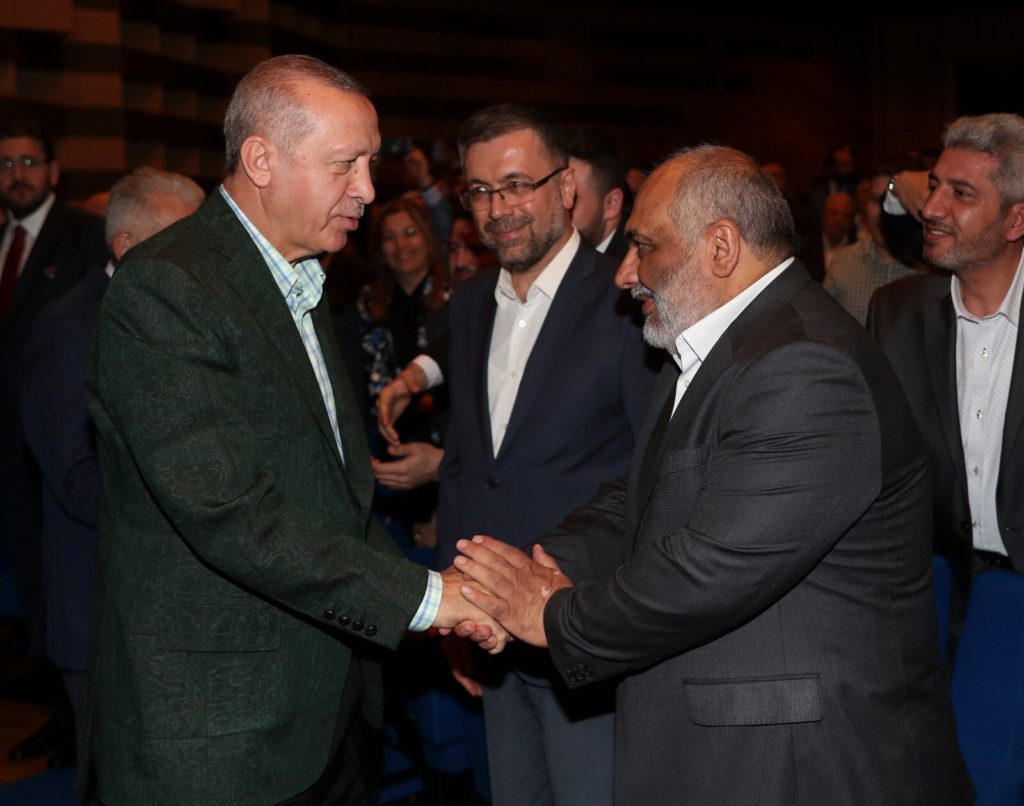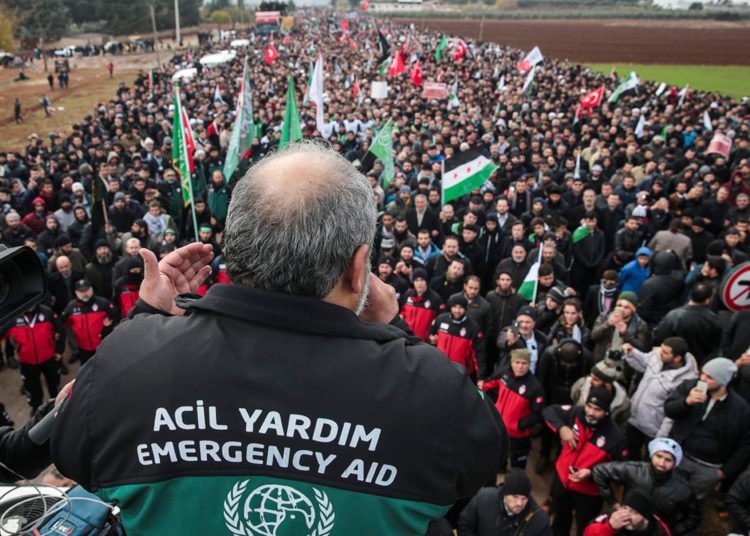Levent Kenez/Stockholm
A Turkish government-backed Islamist NGO has ramped up its activities in areas of Syria seized during the offensive launched by Turkey-backed groups on November 27. The organization is providing logistical support in regions such as Tal Rifaat, located about 20 kilometers south of Turkey’s border and recently abandoned by Kurdish groups, as well as Aleppo, now under the control of Hayat Tahrir al-Sham (HTS). Its efforts focus on addressing food shortages among local populations while avoiding criticism of those who recently captured these areas.
Bülent Yıldırım, president of the Foundation for Human Rights and Freedoms and Humanitarian Relief (İHH), a Turkey-based charity organization with ties to Turkish intelligence and radical jihadist groups, released a video message on the social media platform X, stating, “We have arrived in Tel Rifat and visited families to inquire about their needs. They mentioned a shortage of bread. We decided to immediately send flour to get the bakeries running.”
Yıldırım also called for support for campaigns organized for families in Tel Rifat and other regions of Syria in a separate message, apparently recorded in Aleppo.
In another video, footage shows İHH volunteers traveling in three trucks towards Tal Rifaat after the area was captured by the Turkey-backed Syrian National Army (SNA). One İHH worker expresses his happiness about the return of families who had previously fled the town.
A video released by İHH volunteers showing their delivery of aid to Tal Rifaat.
The recent developments coincide with a prolonged offensive by HTS and allied rebel factions based in Idlib, who have captured significant swaths of territory in northwest Syria. This includes much of Aleppo city, excluding districts still controlled by Kurdish forces.
On December 1, the Turkish-backed Syrian National Army (SNA) captured Tal Rifaat, previously controlled by the US-backed, Kurdish-led Syrian Democratic Forces (SDF). The SDF is well known for its key role in dismantling the Islamic State in Iraq and Syria (ISIS) group’s self-declared caliphate in 2019. However, Ankara regards the Syrian Kurdish People’s Protection Units (YPG), the main component of the SDF, as an offshoot of the Kurdistan Workers’ Party (PKK), which is designated as a terrorist organization in Turkey.
It appears that the rapid delivery of aid to Tal Rifaat by İHH immediately after the YPG’s withdrawal was pre-planned.

The İHH is a front charity that is known as a tool of the Turkish intelligence agency MİT and has been under investigation by the Turkish police. It was accused not only of smuggling arms to al-Qaeda-affiliated jihadists in Syria, but also of involvement in the transport of wounded ISIS and al-Qaeda fighters by ambulance from Syria to Turkey.
Turkish President Recep Tayyip Erdogan’s government helped save the İHH from legal troubles in Turkey while mobilizing resources and diplomatic clout to back the İHH in global operations.
Nordic Monitor previously published a Turkish police intelligence report detailing how the jihadist Libyan Ben Ali group carried out illegal activities with the help of İHH Vice President Hüseyin Oruç and the organization’s former South and East Anatolian Coordinator Selahattin Ozer. The report claims that the Ben Ali group moved between Turkey and Syria to provide logistical support, buy weapons and transport wounded fighters for al-Qaeda-linked terrorist groups in Syria.
The Turkish police also investigated İHH’s ties to al-Qaeda, but President Erdogan intervened to stop the investigation in 2014. The investigation of al-Qaeda cells in Turkey revealed that İbrahim Şen, a convicted al-Qaeda terrorist who had been detained in Pakistan and held at Guantanamo Bay detention camp until 2005, was running a recruitment and trafficking network between Turkey and Syria. İHH allegedly helped provide cover for this network.
Despite facing legal issues, Şen was protected by political support from the government. He was arrested in January 2014 and indicted in October 2014, but was released at the first trial hearing. Following this, Turkish police officers involved in the case were dismissed and the investigation was shut down.

Additionally, the İHH was flagged by Russia as an organization involved in smuggling arms to jihadist groups in Syria. Russian intelligence documents submitted to the UN Security Council on February 10, 2016, included truck license plate numbers linked to İHH shipments of arms and supplies bound for al-Qaeda-affiliated groups, including the Nusra Front, which was the precursor to HTS, a group that emerged as an al-Qaeda affiliate in Syria. In 2016, the Nusra Front officially disbanded and rebranded itself as HTS, distancing itself from al-Qaeda while maintaining similar ideologies and objectives. HTS has since become one of the most influential militant groups in Syria, especially in the Idlib region, where it holds significant control.

Leaked emails of Berat Albayrak, a son-in-law of President Erdogan and former minister of treasury and finance, also implicated the İHH in arming Libyan factions. A secret document found in the emails tells the story of how the owner of a bankrupt shipping and container company demanded compensation from the Turkish government for damage his ship sustained while transporting arms between Libyan ports at the order of Turkish authorities in 2011. The document revealed all the details of a Turkish government-approved arms shipment to rebels in a ship contracted by the İHH.
The Turkish government’s support for the İHH in Syria has previously been documented in UN records. UN investigators from the Independent International Commission of Inquiry on the Syrian Arab Republic issued a warning in their report published on February 8, 2022. The report highlighted a case in which the home of a Kurdish family was seized by members of jihadist groups and handed over to İHH. The İHH then converted the property into a religious school, which was officially opened on June 22, 2019, by the governor of Turkey’s Şanlıurfa province. The Turkish military was also reported to have appropriated several homes in Syria’s Dawoudiya region.
The İHH previously played a key role in the exchange of prisoners between the Syrian opposition and the Syrian President Bashar al-Assad regime, facilitating the release of opposition detainees and Iranian prisoners in 2013 and 2015.












